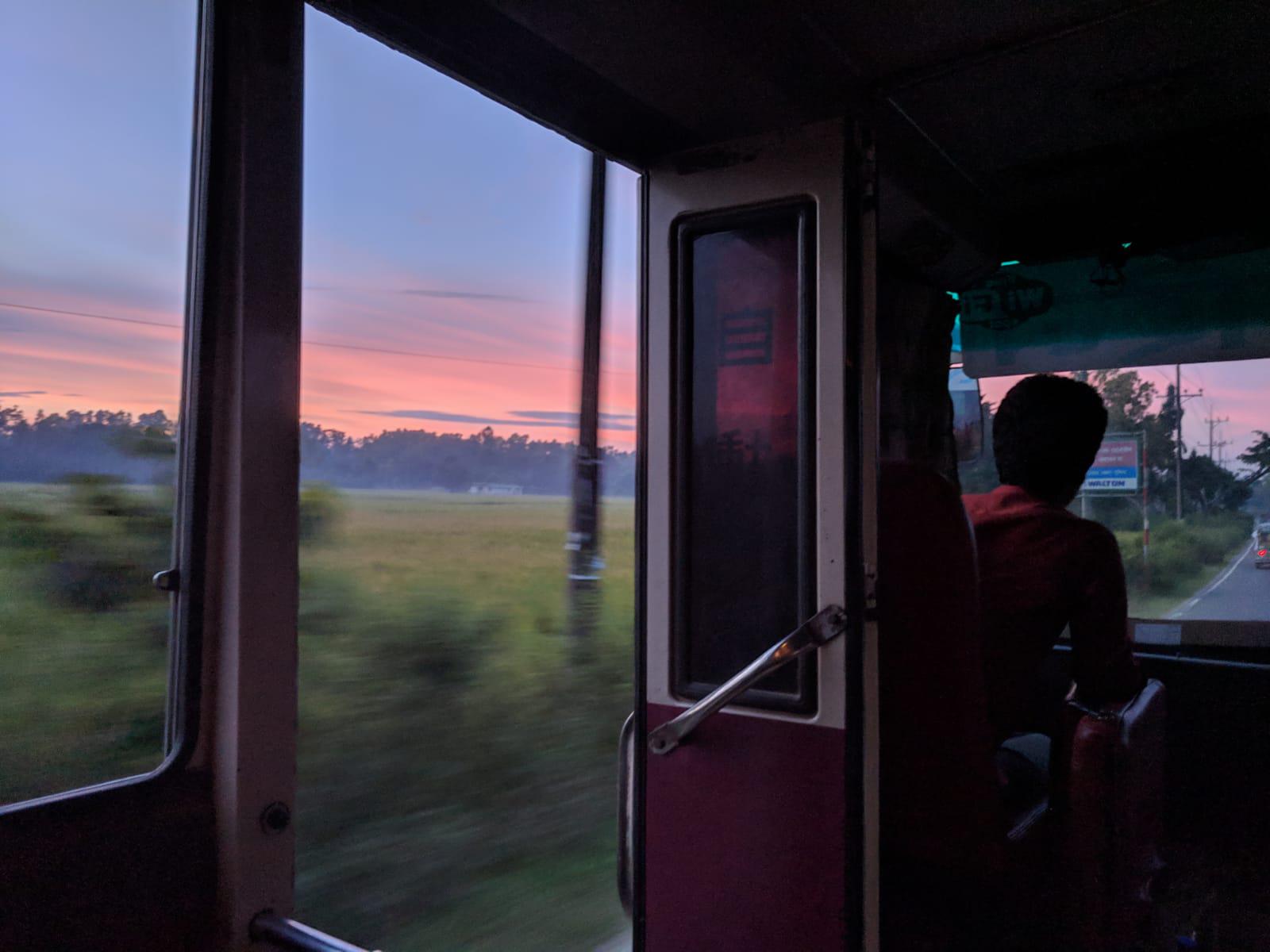


I returned on Sunday from a week in Cox’s Bazaar, house to the largest refugee camp in the world. Approximately a million Rohingya refugees have been forced to settle there, fleeing unimaginable brutality inflicted upon them by the genocidal Burmese military.

There are many faces and stories that won’t leave me, but a more abstract reality that keeps coming to the fore is beauty and the visual contradiction it created. The natural landscape of the area is idyllic. Some of the camps are surrounded by rice fields and palm trees, a short distance away is the longest beach in the world – all red crabs, coral shells and clean sand. Even some of the camp structures themselves, with a little bit of work, would not look out of place in a Hollywood attempt at showing heavenly island living. A glorious constellation of greenery and coast that once made up the Elephant Kingdom of Arakan. Long gone is the Kingdom and unfortunately, its glory too. Walking through a rice field to a palm tree surrounded refugee camp under threat of being burnt to the ground by the Burmese military was one of the more eerie experiences of my life – a functioning school nearby with its young laughter, just steps away from checkpoints and military helicopter patrols and a sinister silence. The tension was palpable and made no less potent by the sun rays that painted this place perfectly. In other circumstances, this could have been paradise, and the uneasiness created by the juxtaposition of beauty and pain was a constant reminder of the evil of man, while the silence reminded me of the banality of that evil.
Along with the confusion, there was the sense of the embarrassment of being in this world. (The term comes from the mouth of Jep Gambardella, the central character in Paolo Sorrentino’s The Great Beauty). To take from Jep’s same monologue, the ‘bla bla bla’ of my existence at home had never been more apparent. The embarrassment of knowing I would have to return to a life so unimaginably privileged in comparison to what I’d witnessed, the embarrassment of being occupied with my own feelings, (the embarrassment of writing this!), the embarrassment of switching off in the evenings and sharing laughter with friends – all this was around me.
Before leaving I had busied myself with the question of usefulness – to make usefulness a purpose and priority in my life. I wanted the trip to be of benefit to the Rohingya community, and while in hindsight I hope I, in some small way, contributed to that collectively with my team, during the work in the camps the question never stopped ringing in my mind. With what gaze should I view the people I meet? With what intention am I carrying out my tasks? Am I being practical enough? Am I being human enough? How best to be useful here, now? The questions formed the backdrop of my work and I hope they served as pointers to my instinct – there is no pause in time that allows one to address these questions and move on, it must be done in real time and I hope it was enough. Enough to remove pity and ego from the situation at hand. Neither of the two will do anything for the Rohingya, nor for anyone else. The only use for my sadness is to use it as a fuel to do more, to do as much as I can with no fear. My position here is what it is, and it is up to me what I do with it.
Another recurring message was the realisation of the violence of borders and citizenship. Of all the interviews I conducted and witnessed, there was rarely a person who didn’t speak of wanting recognition – basic recognition to exist as a human being without fear of arbitrary torture or killing. And so we return to embarrassment; how embarrassing it is, that our world of passports and borders and immigration checks and space travel and modern medicine is one that allows genocide in that same milieu. All based on the idea that this group of people is a non-people, a people that aren’t us. I interviewed a man last week who showed me the Burmese citizenship card that belonged to his mother, and he asked me: If my mother and her parents were Burmese, then why wasn’t I? As if to say, why were they considered human? And what happened that made me something else? Of course, I didn’t have answers, but the question should embarrass as all – that we’ve thought up and invested in something so fickle, and so dangerous. What serves as a pretext to the targeted oppression of the Rohingya is as one might expect – much to do with capital and resource extraction – and the same questions should be asked of the system that allows itself to serve as a pretext to murder. How uninvested am I from this same system? Is divestment on a personal level possible? What other tragedies are yet to be created due to the incessant pursuit of growth? Which other human beings will be considered dispensable?
The reality is that to Burma, the Rohingya are entirely that – dispensable, and while history has shown us time and time again that there will be those menacing enough to dispose of entire peoples, the reality doesn’t become any less bewildering, confusing and embarrassing to think about.